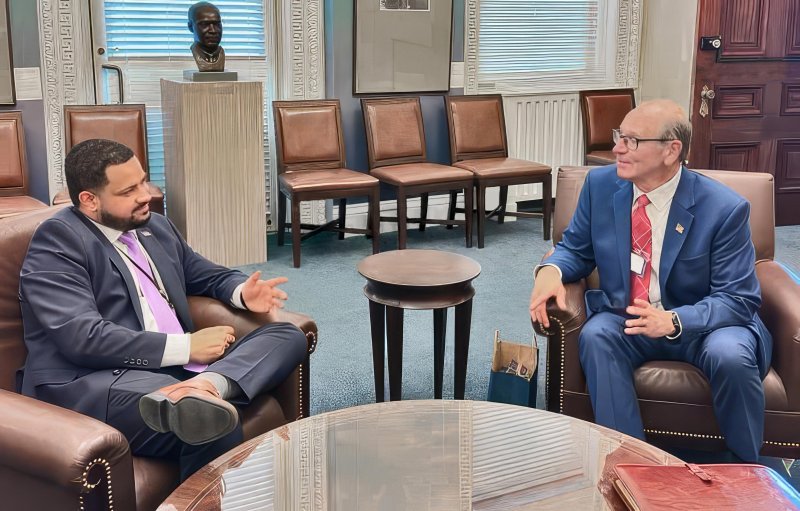Hilovsky takes national stage to champion financial literacy
A local legislator is branching out his financial literacy initiative to the national level.
Rep. Jeff Hilovsky, R-Long Neck, sponsor of a financial literacy bill now law in Delaware that requires freshmen in 2026 to take a minimum half-credit in financial literacy education in order to graduate, recently shared details of the importance of financial literacy with a presidential regional liaison in Washington, D.C.
“This course will provide essential skills students will need to become responsible stewards of their financial futures,” Hilovsky said in a press release following the meeting. “Comprehensive financial education will ensure that every graduate possesses practical knowledge in budgeting, saving, investing, understanding credit and debt, managing taxes and planning for retirement. There is ample data showing that people with a solid grounding in understanding financial concepts are more successful as adults, both in avoiding debt and in significantly increased earnings.”
Hilovsky said he also talked about changing the focus of healthcare from sick care to wellness care.
“We need to change our approach from reactive to proactive,” he said.
After meeting with the presidential liaison, Hilovsky participated in a financial literacy forum sponsored by VISA along with Delaware State University professor Greg Coverdale and professor Scott Bacon of the University of Delaware’s Center for Economic Education.
“I’m trying to partner with the Center for Economic Education, the National Endowment for Financial Education, VISA and officials in the federal government to elevate this conversation to the national level,” Hilovsky said.
Melissa Steele is a staff writer covering the state Legislature, government and police. Her newspaper career spans more than 30 years and includes working for the Delaware State News, Burlington County Times, The News Journal, Dover Post and Milford Beacon before coming to the Cape Gazette in 2012. Her work has received numerous awards, most notably a Pulitzer Prize-adjudicated investigative piece, and a runner-up for the MDDC James S. Keat Freedom of Information Award.






















































